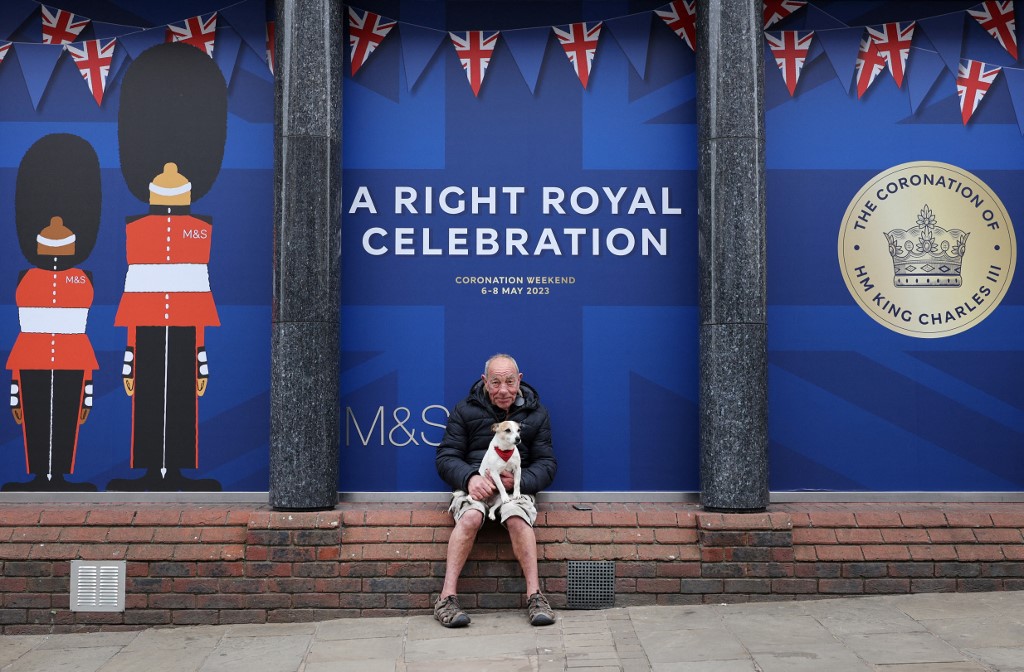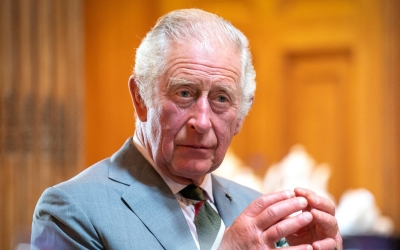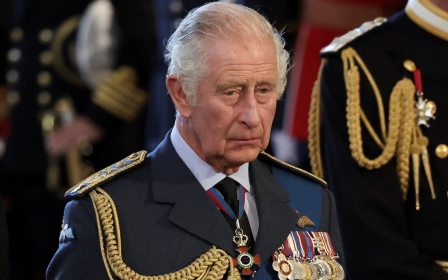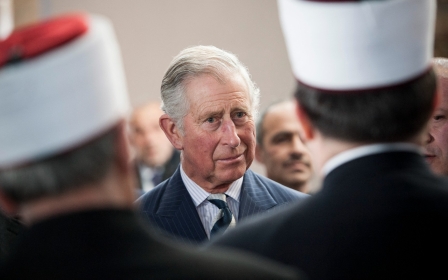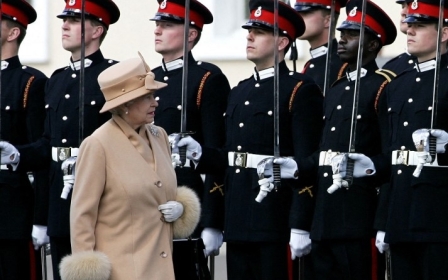King Charles III has nothing in common with Britain's corrupt political elite
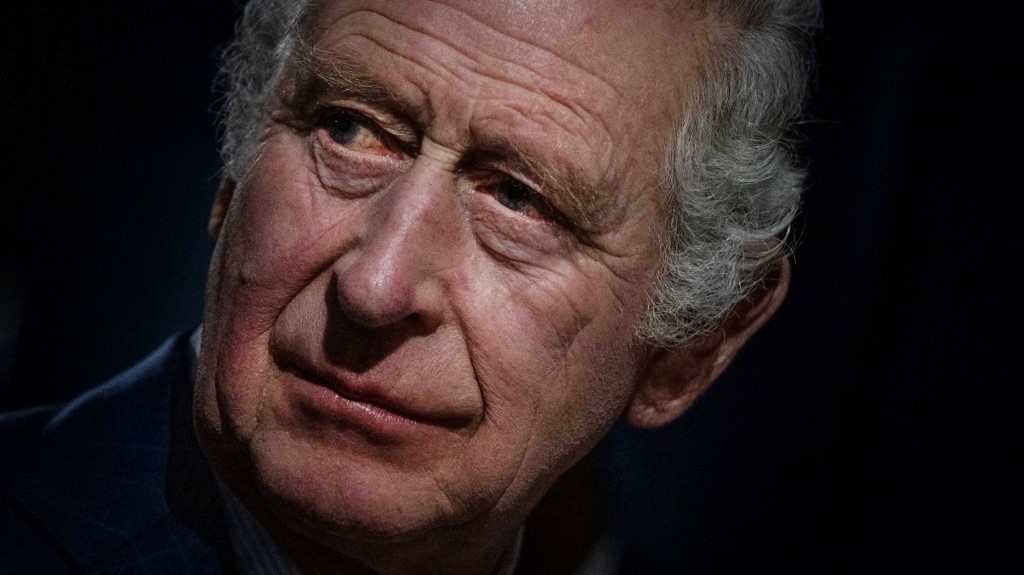
This Saturday’s coronation of King Charles III at Westminster Abbey is being widely understood as fresh evidence that contemporary Britain is governed by a political elite that is hopelessly out of touch with the rest of the country.
Critics point to the cost of the event - a reported £250m ($313m) - at a time of national austerity. They ask what conceivable role a hereditary monarchy has to play in a 21st-century democracy. They mock the medieval overtones of the event, with its paraphernalia of ducal coronets, cloth of gold, and other accoutrements of traditional monarchy.
Republicanism, so long held in check by the overwhelming popularity of Charles’s mother, Queen Elizabeth II, is on the rise. Those who have long despised the monarchy are taking merciless aim at Charles.
The new king is not faultless; far from it. He has made serious errors of judgment and has a well-documented record of self-indulgence. In a democratic age, there are honourable reasons to oppose the institution of monarchy.
Put it this way: if it did not exist, nobody would dream of inventing it.
New MEE newsletter: Jerusalem Dispatch
Sign up to get the latest insights and analysis on Israel-Palestine, alongside Turkey Unpacked and other MEE newsletters
Nevertheless, in this article, I will argue that the critics are misguided. King Charles III is not a member of the corrupt political and financial elite that rules modern Britain. In fact, the new British king has nothing in common with it at all, and is opposed to everything it stands for.
This means that he should be understood as a countercultural figure who is adamantly opposed to both the practices and principles of the governments of Rishi Sunak and his two disgraced predecessors, Liz Truss and Boris Johnson.
Coronation prayers
This becomes apparent the moment you look behind the headlines that have dominated the run-up to the coronation - many of which have concerned the soap opera of Prince Harry and Meghan Markle - and instead ponder the event itself.
The coronation reflects the permanent values of Christianity (and now, at Charles’s insistence, other great religions), rather than transient political reality. This introduction of the sacred into public life is jarring in a country whose undeclared national ideology is secular liberalism.
Secular liberalism emphasises individual rights, whereas religion is about community, compassion and love for our fellow men. Ultimately, religion and liberalism embody two opposite ways of seeing the world.
One of the coronation prayers, published by the Church of England before Easter, states: “Jesus shows us what we might all aspire to: the possibility of living for others, of seeking the wellbeing of the whole community, of moving beyond self-interest to self-sacrifice.”
At one level, this is a religious injunction to care for our fellow human beings. At another level, it is a devastating condemnation of the current British government and its dedication to greed, self-enrichment, abuse of high office, and cynical policies that stir up division and hatred for political advantage.
On every great issue of our age, Charles stands fundamentally at odds with the elite that governs Britain
Republicans are entitled to object that Charles himself is far from perfect. But that misses the point. He is (like all of us) a version of fallen humanity, but the institution he now embodies represents a set of values that offers a standing reproach to the theory and practice of the British governing class.
This explains why, on every great issue of our age, Charles stands fundamentally at odds with the elite that governs Britain. The daily prayers for the king’s coronation contain a section on the environment, with a call to be “good stewards of the earth”; this issue has preoccupied the king for decades.
Despite rhetoric to the contrary, successive British governments have not made any serious attempts to fight climate change - so much so that one of Sunak’s first actions as prime minister was to confirm an order that forbade the king from attending last year’s Cop27 summit in Egypt.
Protecting diversity
Meanwhile, the king has made known that he detests the government’s proposal to deport asylum seekers to Rwanda. Here, too, the coronation - with its unprecedented emphasis on religious freedom and diversity - is a standing rebuke to the bigoted ethno-nationalism of the current government.
At a reception for faith leaders following the death of Queen Elizabeth II, the new king spoke of his “duty to protect the diversity of our country, including by protecting the space for faith itself and its practice through the religions, cultures, traditions and beliefs to which our hearts and minds direct us as individuals”.
Hence the role for Hindu, Jewish, Buddhist, Sikh and Muslim leaders at the coronation. Admittedly, their role is limited, and Christianity remains the state religion. Their presence nevertheless represents a profound recognition of the change in British society since the coronation of the late queen almost exactly 70 years ago.
Like the environment, the king’s engagement with religion is entirely genuine, and has been a constant theme of his public and private life. To take the case of Islam, Charles sought to learn Arabic in order to better understand the Quran; opposed the Iraq War; and powerfully rebutted the “clash of civilisations” thesis advanced by Samuel Huntington.
As Imran Mulla and I recently argued in Middle East Eye: “It’s hard to conceive of a greater contrast with recent interventions by Britain’s most senior politicians.”
Charles’s great-great-grandfather, Edward VII, took the throne at 59 after the death of Queen Victoria. Charles had an even longer wait. At 73, last year, he became the oldest monarch ever to ascend to the British throne.
King Edward VII, an overweight cigar smoker who favoured the company of plutocrats, embodied the spirit of his age. King Charles III does not. The values he cares about - concern for the long term, support for public service, and above all a deep sense of community - place him at odds with the financial, media and political interests that are reshaping modern Britain.
His sense of the past, respect for the public domain, and belief in the sacred mean that he represents everything the modern political establishment despises. That makes him a subversive figure. It may turn out that he is more in touch with the British people than his enemies realise.
The views expressed in this article belong to the author and do not necessarily reflect the editorial policy of Middle East Eye.
Middle East Eye delivers independent and unrivalled coverage and analysis of the Middle East, North Africa and beyond. To learn more about republishing this content and the associated fees, please fill out this form. More about MEE can be found here.



